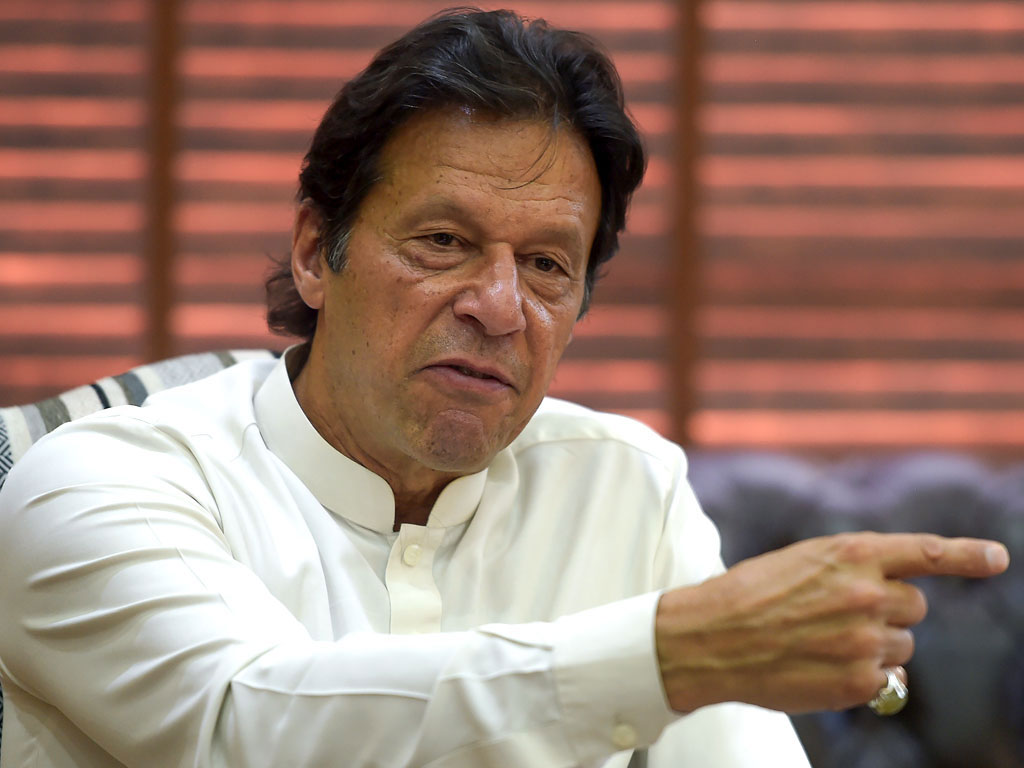Another press briefing by PM

In yet another press briefing, Prime Minister Imran Khan flanked by Minister of Finance Asad Umar, Minister of Information Fawad Chaudhry and Chairman Task Force on Energy restated that his administration inherited the financial crisis, adding that "the previous government left a record debt. If my government takes less loans than they did, it means we are in the right direction." With more than three months remaining till the end of the current fiscal year (30 June), debt data made available by the State Bank of Pakistan (SBP) pertains to the first six months only while a more accurate comparison would require a full year's data as the need for borrowing would rise with a rise in the budget deficit.
According to the State Bank of Pakistan (SBP) second quarterly report, gross public debt rose by 10 percent in rupee terms during the first six months of 2018-19 due mainly to the depreciation of the rupee "despite much lower additional debt accumulation during the first half of FY2019." The Prime Minister is clearly unaware of what is by now standard operating procedures of SBP which includes: (i) not releasing debt data in dollars and/or using provisional data that is later shown to be markedly different from actual data on its website as is the case at present; (ii) there is no doubt that so far the government has resisted procuring market loans from the commercial banking sector abroad, unlike the previous government, however, the current debt data does not include deposits made by Saudi Arabia (3 billion dollars), the United Arab Emirates (one billion dollars credited with another 2 billion dollars expected to be credited before the end of the fiscal year) and a 2.2 billion dollar loan from China as debt though none of these was grant assistance and all were loans for the short-term at rates that have not been confirmed; be that as it may, till December 2018 the Saudi government had parked up to 2 billion dollars in SBP; and (iii) delaying uploading of data to give the government breathing space to implement policies that would better deal with the issue.
In absolute terms, the Khan administration's reliance on domestic debt, and borrowing from the SBP in particular, a highly inflationary policy opposed by multilateral financial institutions, including the International Monetary Fund, rose to 2.7 trillion rupees in the current fiscal year with 2.4 trillion rupees in the comparable period of the year before - a rise of 12.5 percent. This increase in reliance was necessitated due to a decline in revenue in absolute terms in comparison to the year before without a commensurate decrease in expenditure (which incidentally rose in absolute terms). It is unfortunate that the decline in revenue in absolute terms is continuing as is the expenditure rise (with the industrial package estimated to cost over 140 billion rupees) in spite of economies implemented by the Prime Minister (inclusive of sale of cars and buffaloes) as well as in ministries because the amount of these savings as a percentage of the country's total budget remains insignificant. In other words, with the budget deficit rising, and estimated to rise to over 7 percent by the end of the current fiscal year in the event that the current policies are allowed to continue which in turn would compel the government to increase reliance on debt.
Foreign loans were 95 billion dollars by end of the PML-N administration while today, including loans from Saudi Arabia, China and the one billion dollar parked by the UAE government gives total foreign debt as 104.2 billion dollars - a rise of 7.5 percent. True that the Khan administration had little choice but to seek these loans yet without reducing the deficit debt - domestic and foreign - will only rise further.
On the occasion the PTI government's stated position was again reiterated that an agreement will soon be reached with the IMF and that Pakistan has not changed its stance but the gap with the Fund has narrowed. implying that the IMF has changed its stance. Such statements tantamount to putting a positive spin on the issue for the masses rather than a reflection of the ground realities especially as IMF staff operates within a narrow band of conditions likely to be approved by the Board.























Comments
Comments are closed.